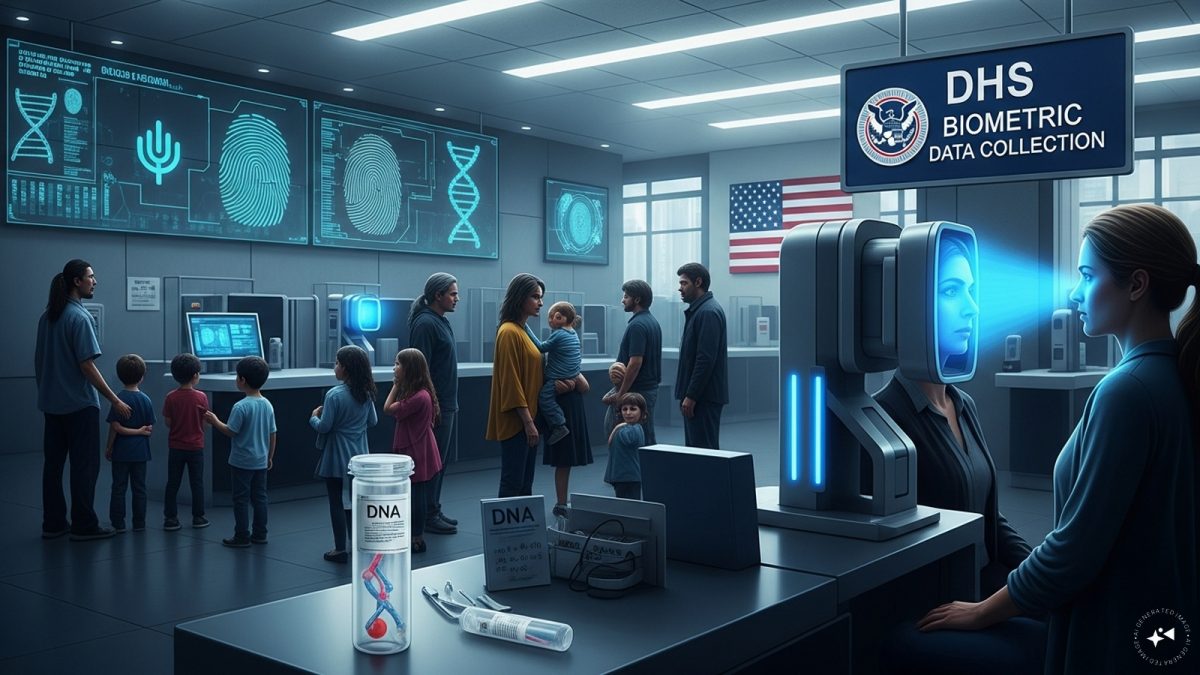The US Department of Homeland Security (DHS) has unveiled a new proposal that would require all applicants for immigration benefits to provide biometric data — including DNA — regardless of age or application type.
The proposal, published on the US Federal Register website, seeks to significantly broaden current data collection rules, which currently apply only to specific categories such as naturalisation, asylum, work permits, and permanent residency.
Wider scope for biometric collection
Under the proposed rule, the DHS would have the authority to collect a wider range of biometric identifiers, including facial and iris scans, fingerprints, voice prints, and handwritten signatures. DNA samples could also be taken to verify biological relationships or, in some cases, to confirm “evidence of biological sex when relevant for certain immigration benefit requests.”
According to the draft rule, “any individual filing or associated with an immigration-related benefit request or other request adjudicated by DHS, regardless of age, must appear for biometrics submission unless exempted.”
The expanded authority would also allow DHS to collect biometrics when a noncitizen is detained by immigration officials — extending data collection beyond formal application processes.
Focus on DNA and identity verification
A central feature of the proposal is the expansion of DHS’s power to collect, test, use, and store DNA samples. The rule aims to formalise how genetic information can be used, shared, and retained for identity verification and law enforcement purposes.
Currently, DNA collection in immigration cases is restricted to two main situations:
Family relationship verification: Applicants may be asked to provide DNA evidence when documentary proof of biological ties is insufficient. Tests must be conducted through a USCIS-approved laboratory at the applicant’s expense.
Border and law enforcement programmes: Since 2019, Customs and Border Protection (CBP) and Immigration and Customs Enforcement (ICE) have been collecting DNA from some non-US citizens in custody under the FBI’s Combined DNA Index System (CODIS), as authorised by the DNA Fingerprint Act of 2005.
If implemented, the new rule could make DNA testing a routine element of immigration processing — a major shift from current practice.
DHS defends move as security measure
DHS has justified the changes as necessary to enhance national security and prevent fraud.
“Using biometrics for identity verification and management will assist DHS’s efforts to combat trafficking, confirm the results of biographical criminal history checks, and deter fraud,” the agency stated.
Officials say the expanded use of biometrics will strengthen background checks and improve accuracy in verifying applicants’ identities.
Impact Shorts
More ShortsLegal and privacy concerns
The proposal marks a reversal of an Obama-era position that deemed mass DNA collection from immigration detainees unfeasible. Legal experts have warned that the move could face multiple court challenges over privacy rights, genetic data protection, and government overreach.
Observers believe the rule could ultimately reach the US Supreme Court, as it raises significant questions about how far the government can go in collecting and using personal genetic information.


)

)
)
)
)
)
)
)
)



